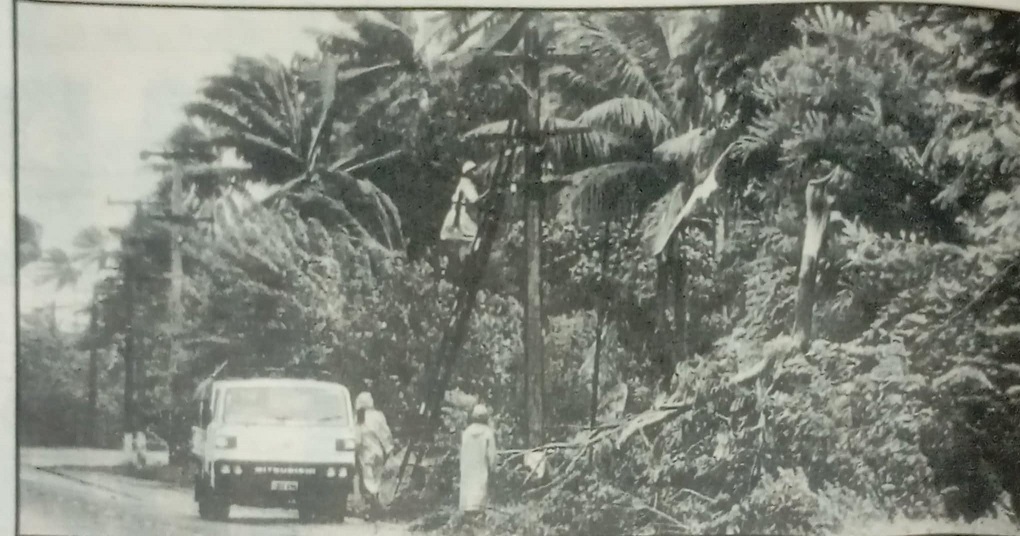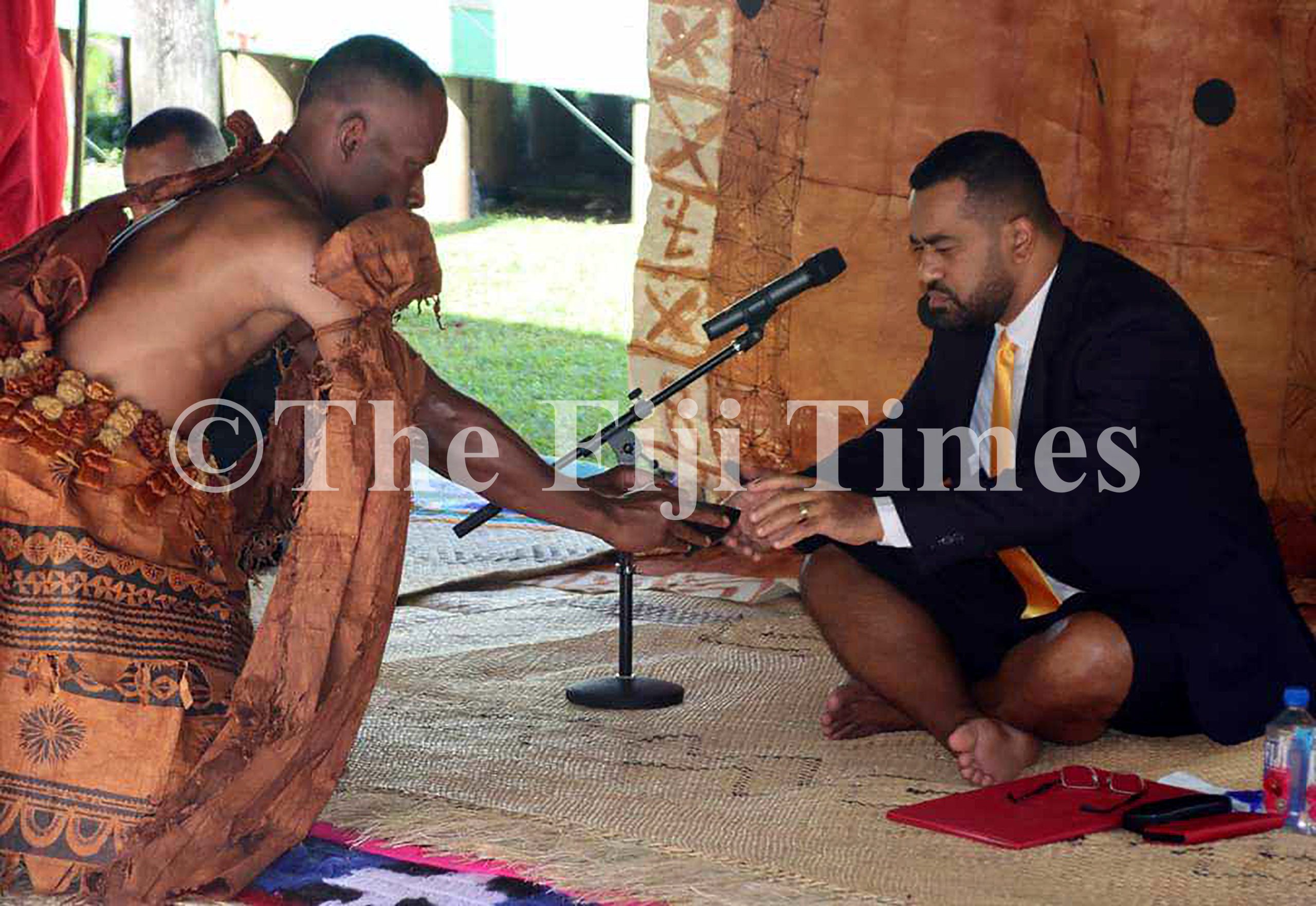In the scorching sun, armed with cane knives and files, the women of Uruone Village in Vanuabalavu toil with blistered fingers and soiled hands.
Perhaps more dramatically, in their quest for change, they break a cultural norm and stereotype that has stood for generations – that a woman’s place is in the kitchen. The women are not only mothers, housewives and caregivers.
They have become managers, farmers and small business entrepreneurs. “We decided to do something to lessen the burden of poverty in our community, by earning money to raise our standard of living.
The need to break out of this poverty drove the women to take action,” said Project officer Emele Galoaca.
The women’s group had applied and received funding from the Global Environment Facility Small Grants Programme (GEF SGP), implemented by the United Nations Development Programme, to start a ‘Cassava Flour Project’.
The project was themed: ‘Breaking barriers to improve long-term sustainable livelihood’. But to carry out the project, they had to first plant their own cassava. In their community, the role of clearing the land and farming fall squarely on the men.
Emele said they had asked the men for help, but that request was not fully supported. So, the women took it upon themselves to do the impossible, something considered shameful in some parts of Fiji – to clear the land and cultivate a farm.
Little did they know, that as people went past the village, they began to notice what was going on in the hills.
“As men from other villages went past each day, they saw us clearing the land and ridiculed our men,” she said.
“So when the village meeting was held, the chairman asked why we were weeding, and told us to hand over the task to the men.”
“So, we handed it over to them and they finished the clearing and planting of the cassava plantation.”
But the work was far from simple. The women took up the project because it was hard for them to meet all financial obligations of the vanua, church, school and family.
Before, they would send their handcrafts to Suva whenever the boats came to the island, which was usually once or twice a month.
First, the project aimed to meet the shortage of flour in the community stores because of the irregular boat schedules to the island.

The women’s group poses for a photo after clearing land. Picture: SUPPLIED
“We want to fill in that space, when the flour runs out in the shops and boats delay their trips, which happen often.
We also believe that this flour is the best because it is not processed but natural,” said Emele. Over time, the women of Uruone hope to grow enough to produce flour that could be sold in Suva.
This means, they would have to improve their processing, set prices and manage the revenue created. Having learned from previous small projects, which lacked skills training and financial planning, the women’s group has set up with a clear strategy.
With some fund assistance, the women ran a little symposium on the island to raise awareness on the cassava project and invited three reps from each village to attend. Next, they did their research on training opportunities and made applications.
“Thirteen of us, together with some of our girls who are members of the youth came to Suva to attend the trainings and we just paid 15 per cent of our accommodation and meals,” she said.
“We were trained by the ANZ Bank on financial literacy facilitated at the Reserve Bank. Other trainings followed with a knowledge exchange programme by the iTaukei Trust Fund. We also went on a site visit to the Hot Bread Kitchen, attended a manual presentation on cassava flour processing at the ADRA headquarters in Lami with other interested groups and a session with the Ministry of Trade and Cooperatives,” said Emele.
The women started the cassava flour process by doing it manually.
They had to peel the cassava, let it stand in water for three days, sun-dried them and then pounded them to make cassava fl our. It worked but they wanted to produce more fl our in order to make it profitable.
There were also challenges in the village at the beginning of the project, as the area where they planted the first batch of cassava brought differences between them who those that owned the land so the 1000 cassava plants they had planted were uprooted.
“But that did not deter us, so I asked my uncle for some land and was given five acres. Our gardening tools were donated by ADRA and our cassava plants are now waiting to be harvested,” she said.
Last month, the women used GEF SGP funds to purchase a solar-powered drier and a pounder.
“We have stored the equipment in the village hall, but we have been told to look for a house to work from. So now we are trying to look for further funding to build a house for the equipment and where we can operate from,” said an anxious Emele.
“We have sent our requests to some organisations and funders, and we are waiting and praying. The cassava that we planted is about to mature and then we will have to start. We have also been getting queries from other villages on when we would begin as they also planted cassava in anticipation of this project.”
“The women’s group of Uruone Village in Vanuabalavu is demonstrating how valuable assistance, such as a small grant targeted at motivated people in communities, can create change,” said UNDP GEF Small Grants Programme Fiji, national coordinator Akisi Bolabola.
“We can all learn a lot from their commitment to find a way no matter the challenges.” As for men’s work and women’s work in the village, perhaps that will take some more discussion and time.
“We had been told by our men that the village should be involved but we have asked that it be left to us. They need to trust us to do it ourselves,” said Emele.
“As in some communities, most men don’t understand the strength in women when empowered. Women diligently do their work and most times these women are the powerhouses in their families, and they will go to great lengths to meet obligations whether for the vanua or the church or family.”
“Our men will always be head of the family and we will never take their place nor withhold anything from them but all we ask is for them to let us run it and they support us when we need them,” she said.
- ALUMECI NAKEKE is the communications officer at cChange. The views expressed in this article are the author’s and do not necessarily reflect the views of this newspaper





